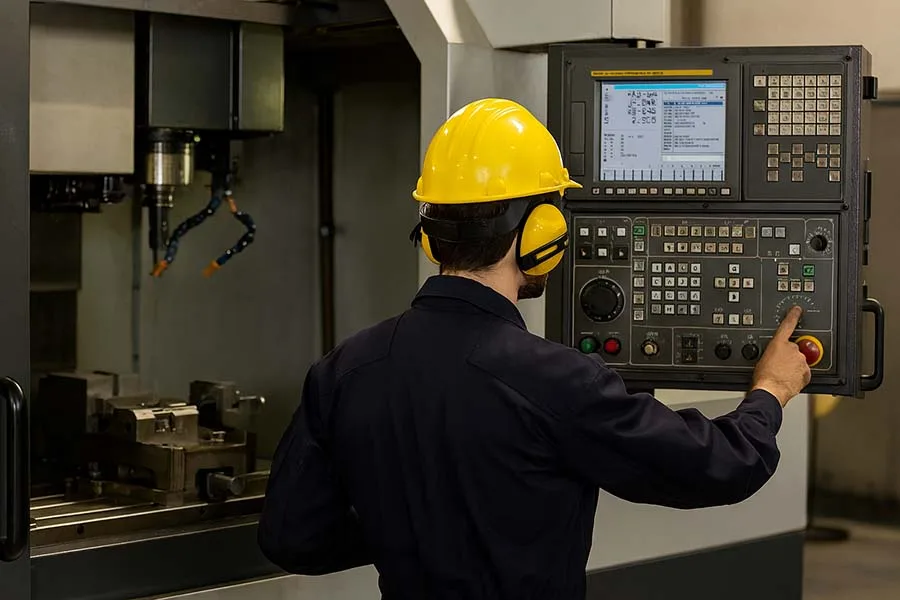Introduction
The world of CNC machining isn’t just about mastering machines—it’s also about proving your skills. That’s where CNC operator certifications come in. Whether you’re new to machining or aiming to advance into specialized roles, certifications help you stand out in a competitive market.
But here’s the big question: Which certification path is right for you? Let’s break down the options, their benefits, and how they fit into different industries.
Why Get Certified as a CNC Operator?
Before we explore the certification paths, let’s quickly answer the key question: why bother?
- ✅ Career advancement – Certifications show employers you have verified skills.
- ✅ Higher salaries – Certified operators often earn more.
- ✅ Flexibility – Recognized certifications can open doors across industries.
- ✅ Confidence – You’ll feel more secure when running complex operations.
Main CNC Operator Certification Paths
1. NIMS Certification (National Institute for Metalworking Skills)
- Best for: U.S. operators seeking widely recognized credentials.
- Focus: Machining standards, CNC operations, and quality control.
- Levels: Covers everything from entry-level CNC operator to advanced setup and programming.
- Why it matters: Many U.S. employers list NIMS as a preferred credential.
2. AMT/NTMA Apprenticeship Programs
- Best for: Beginners looking for hands-on training while earning.
- Focus: Combines classroom learning with real-world shop experience.
- Format: Usually 3–4 years, but leads to journeyman certification.
- Why it matters: Provides both education and work experience simultaneously.
3. Community College & Technical School CNC Certifications
- Best for: Entry-level workers and career switchers.
- Focus: CNC fundamentals, G-code, tooling, and machine operation.
- Duration: 6 months to 2 years depending on program depth.
- Why it matters: Affordable and accessible, often with local industry partnerships.
4. OEM Certifications (Haas, Siemens, Fanuc, Mazak)
- Best for: Operators in shops using specific CNC controls.
- Focus: Proprietary machine operation and programming.
- Why it matters: Directly aligned with the machines you’ll use every day.
- Bonus: Some employers sponsor training for these certifications.
5. Online CNC Certification Programs
- Best for: Professionals seeking flexibility.
- Focus: Virtual courses with simulation software, theory, and sometimes exams.
- Why it matters: Great for upgrading knowledge without leaving your job.
- Examples: Tooling U-SME, Coursera industry partnerships, and Udemy technical programs.
Career Benefits of Certification
- Higher Job Security: Certified CNC operators are less replaceable.
- Global Recognition: Certain certifications, like NIMS or OEM-specific ones, are valued worldwide.
- Path to Programming: Certifications can serve as stepping stones toward CNC programmer or supervisor roles.
Choosing the Right Path
So, how do you decide? Ask yourself these questions:
- Am I brand new to CNC machining? → Community college or apprenticeship might be best.
- Do I want a career in a specific company or industry? → OEM or employer-sponsored certifications win.
- Am I already experienced but need formal proof? → NIMS or online certifications can validate your skills.
Funny Fact 🤔
Did you know some CNC operators jokingly say their first “certification” came from not crashing a spindle for six months? While true experience matters, official certifications look a lot better on a résumé.
Lesser-Known Fact 💡
The U.S. military runs its own CNC operator training and certification programs. Many veterans transition directly into civilian machining roles with high-level credentials already in hand.
Further Read
- CNC Machining Training & Support: Your Complete Resource
- Glossary of CNC Terms
- FAQs About CNC Machining – Answers to the Most Common Questions
- Best Practices for CNC Safety: Protecting Operators & Machines
- CNC Operator Certification Paths: Which One Is Right for You?
Conclusion
CNC operator certifications are more than just paperwork—they’re career boosters. From NIMS to OEM-specific programs, each path offers unique benefits depending on your goals. The right choice depends on where you are in your career and where you want to go.
👉 Which CNC certification do you think carries the most weight in today’s job market? Share your thoughts in the comments below!





